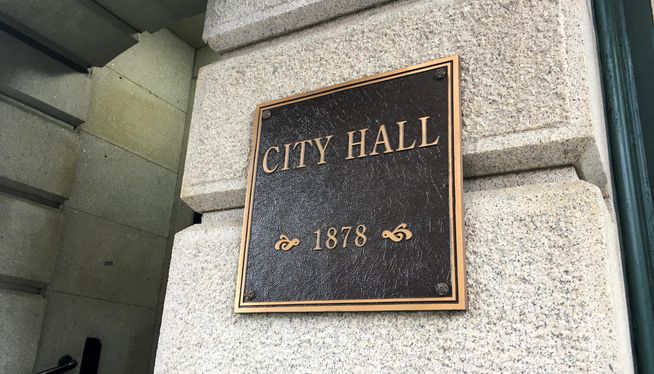
The Associated Press
Providence residents will soon decide whether they want the city to borrow up to $515 million for its pension system, which is one of the lowest-funded public pension plans among major U.S. cities.
The Providence City Council voted Thursday night to call for a June 7 special election to ask the question. Rhode Island’s General Assembly also needs to approve, given the size of the debt. State lawmakers are currently considering legislation to authorize Providence to issue the bonds.
The city’s pension working group said in January that the system’s $1.265 billion unfunded liability is the most significant obstacle to sustainable economic competitiveness and affordability, and a significant threat to the state’s fiscal sustainability.
The Employee Retirement System was only 22.2% funded as of June 30, 2020, according to the group. Total pension liabilities equated to $8,518 per resident, of which $6,629 is not funded. The most recent actuarial valuation found that the funded ratio is nearly 24%, the mayor’s office said Friday.
David Draine at The Pew Charitable Trusts said the goal is to be 100% funded, but the average for municipal plans he researched was 68%. At less than a quarter funded, it’s going to make things hard for Providence for a number of years, added Draine, a principal investigator and methodologist for Pew’s research on public sector retirement systems.
State and local pension plans saw “windfall returns” in 2021 that helped their balance sheets, but Providence didn’t have the assets on hand to fully take advantage of that growth, Draine said Friday.
“It’s very rare that pension promises don’t actually get paid,” he said. “In situations like this, it can instead crowd out important public investments, whether it’s fixing roads or putting teachers in the classroom or the range of things cities and states are tasked with doing. With pension costs taking a larger share of public resources, you’re able to do fewer things that are directly benefiting people today.”
By fiscal 2027, the city could be using nearly 21% of its general revenue to contribute to the plan, according to the pension working group.
The unfunded pension liability in Providence increased by more than $1 billion since 1991, largely due to the city promising “unsustainable benefit increases” to retirement system members more than 30 years ago without funding the associated annual contribution, the pension working group said. The system covers nearly 7,000 employees and retirees.
The pension group also said current retiree liabilities are unsustainable, but bankruptcy is not an option. Central Falls, the state’s smallest city, became the first in Rhode Island to declare municipal bankruptcy in 2011. The city emerged from bankruptcy after retirees’ pensions were cut, some by more than 50%.
The heads of the Rhode Island Public Expenditure Council, Greater Providence Chamber of Commerce and Providence Foundation led the pension group. Democratic Mayor Jorge Elorza participated. Elorza has called the unfunded pension liability a “ticking time bomb.”
The group recommended requesting authorization for a pension obligation bond if market conditions are favorable and continuing to reform retiree liabilities through collective bargaining.
U.S. Commerce Secretary Gina Raimondo spearheaded an overhaul of Rhode Island’s pension system to address the growing pension liability when she was state treasurer.
The results of the June 7 vote are nonbinding. The city wouldn’t borrow the money if interest rates are considered too high.












